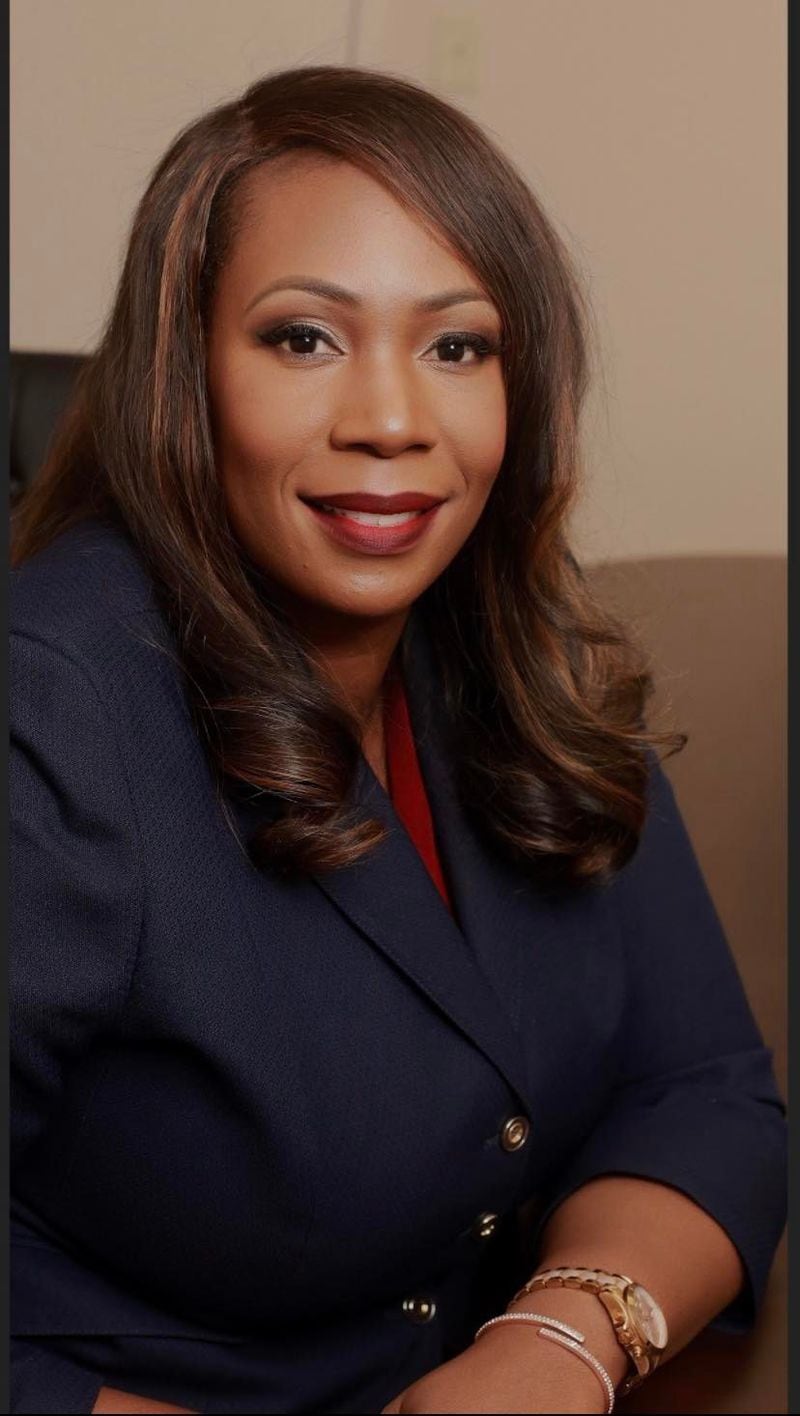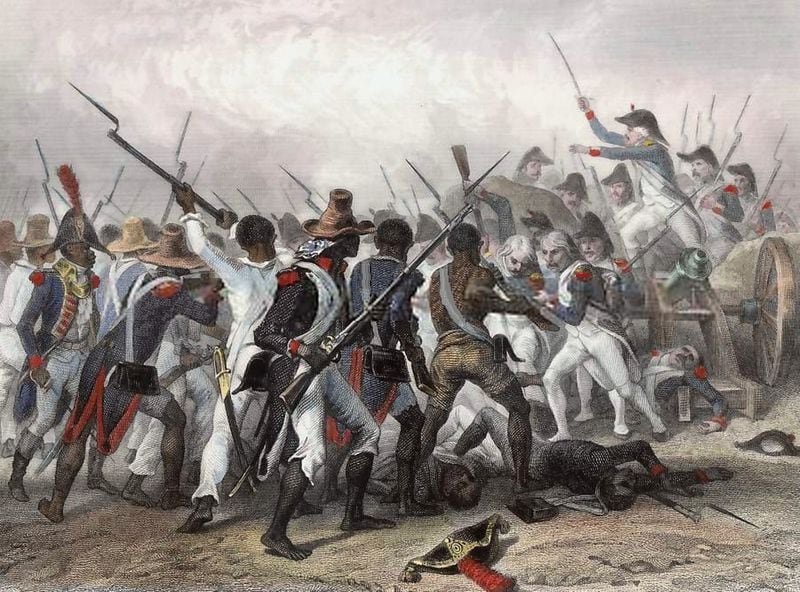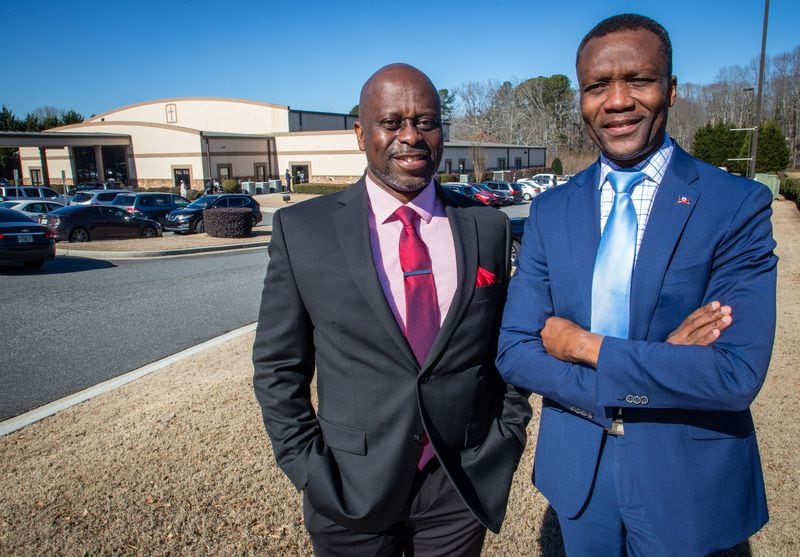You are using an out of date browser. It may not display this or other websites correctly.
You should upgrade or use an alternative browser.
You should upgrade or use an alternative browser.
Haitian Appreciation Thread
- Thread starter Fatboi1
- Start date
More options
Who Replied?get these nets
Veteran
FLORIDA
'Sa k ap fèt?' Duolingo is launching a Haitian Creole course for English speakers
By Wilkine Brutus
February 21, 2022

Duolingo
/
Duolingo says is partnering with Haitian-run businesses across the county, giving away a free month of the app’s premium subscription service when customers patronize and practice Haitian Creole at participating businesses.
“Mwen renmen diri” (I love rice). That’s just one of many sentences students will grasp when they're studying Haitian Creole (or kreyòl) grammar, throat and nasal sounds through Duolingo’s new course for English speakers.
It's also a step-by-step journey through the national language of the world’s first Black republic— Haiti.
“Language not only tells the present story of what we’re saying but by the words we choose and by the grammar that we have made, it tells a much larger story of who we are,” says Nyya Flores Toussaint, a Haitian-American scholar of linguistics.
Toussaint is a contributor to the Haitian Creole course. He said through more than 114 lessons, English speakers will connect with Haitian language, culture, politics, spirituality, and its revolutionary history.
“We have a proverb that says ‘kreyòl pale, kreyòl konprann'… [which means] 'Creole spoken is Creole understood,'” Toussaint said.
The app is partnering with Haitian-run restaurants across the country, such as Manjay Restaurant in Miami, to spread the word and give away a free month of the app’s premium subscription service when customers patronize and practice Haitian Creole at participating businesses.

And now local leaders want to learn how to show love or order Haitian food in kreyòl. Duolingo recently challenged Miami Mayor Francis Suarez to keep a 30-day streak of Haitian Creole lessons in exchange for a $30,000 donation to Haitians in Tech, a Miami-based organization that supports Haitians in technology careers.
Toussaint helped create the language course alongside his mentor Nick “Tiko” André, professor of Haitian Creole and French instructor at Florida International University.
André says the language program goes beyond a cross-cultural exchange and language education. The newfound attention toward Haitian Creole is also an opportunity to expand business relationships — the language is spoken by more than 12 million people and it’s one of the top three languages in the tri-county area, behind English and Spanish.

According to the U.S. Census, Florida has the largest Haitian population in the United States. André is also a contributor for the app. He said even Haitian Creole speakers in the diaspora can benefit from the app as well.
“Well, interestingly, a lot of people, a lot of Haitians who know Kreyòl can learn English by using this app. They can learn English,” said Andre. “I can ask my students to use the app to complete assignments from the classroom.”
Cindy Blanco is Senior Learning Scientist at Duolingo. She connects research and language pedagogy to the curriculum, “how best to teach and how learners learn languages.”
Blanco said Duolingo is using gamification throughout the course, from earning points to keeping up with lessons that gradually increase in difficulty. “Language learning should be fun,” said Blanco.“It should be enjoyable. It doesn’t have to be the case that language learning is kinda of sitting alone in the corner memorizing verb tables.”
“We want learners to be excited about coming back to their lessons.”
The Duolingo team is working on more Black tongues, such as Zulu and Xhosa, two languages in South Africa.
As for Haitian Creole, the Duolingo course follows the linguistics standards set by the Haitian Creole Academy, or Akademi Kreyòl Ayisyen in Port Au Prince, Haiti. André is a founding member of the academy.
“The primary role of the Haitian Creole Academy is to make sure that Haitian Kreyòl is used everywhere,” André said
===========
You made this comment in response to the new Igbo language course being offered Oxford. Do you feel the same way about this story about Haitian Kreyol classes and this app?
'Sa k ap fèt?' Duolingo is launching a Haitian Creole course for English speakers
By Wilkine Brutus
February 21, 2022

Duolingo
/
Duolingo says is partnering with Haitian-run businesses across the county, giving away a free month of the app’s premium subscription service when customers patronize and practice Haitian Creole at participating businesses.
“Mwen renmen diri” (I love rice). That’s just one of many sentences students will grasp when they're studying Haitian Creole (or kreyòl) grammar, throat and nasal sounds through Duolingo’s new course for English speakers.
It's also a step-by-step journey through the national language of the world’s first Black republic— Haiti.
“Language not only tells the present story of what we’re saying but by the words we choose and by the grammar that we have made, it tells a much larger story of who we are,” says Nyya Flores Toussaint, a Haitian-American scholar of linguistics.
Toussaint is a contributor to the Haitian Creole course. He said through more than 114 lessons, English speakers will connect with Haitian language, culture, politics, spirituality, and its revolutionary history.
“We have a proverb that says ‘kreyòl pale, kreyòl konprann'… [which means] 'Creole spoken is Creole understood,'” Toussaint said.
The app is partnering with Haitian-run restaurants across the country, such as Manjay Restaurant in Miami, to spread the word and give away a free month of the app’s premium subscription service when customers patronize and practice Haitian Creole at participating businesses.

And now local leaders want to learn how to show love or order Haitian food in kreyòl. Duolingo recently challenged Miami Mayor Francis Suarez to keep a 30-day streak of Haitian Creole lessons in exchange for a $30,000 donation to Haitians in Tech, a Miami-based organization that supports Haitians in technology careers.
Toussaint helped create the language course alongside his mentor Nick “Tiko” André, professor of Haitian Creole and French instructor at Florida International University.
André says the language program goes beyond a cross-cultural exchange and language education. The newfound attention toward Haitian Creole is also an opportunity to expand business relationships — the language is spoken by more than 12 million people and it’s one of the top three languages in the tri-county area, behind English and Spanish.

According to the U.S. Census, Florida has the largest Haitian population in the United States. André is also a contributor for the app. He said even Haitian Creole speakers in the diaspora can benefit from the app as well.
“Well, interestingly, a lot of people, a lot of Haitians who know Kreyòl can learn English by using this app. They can learn English,” said Andre. “I can ask my students to use the app to complete assignments from the classroom.”
Cindy Blanco is Senior Learning Scientist at Duolingo. She connects research and language pedagogy to the curriculum, “how best to teach and how learners learn languages.”
Blanco said Duolingo is using gamification throughout the course, from earning points to keeping up with lessons that gradually increase in difficulty. “Language learning should be fun,” said Blanco.“It should be enjoyable. It doesn’t have to be the case that language learning is kinda of sitting alone in the corner memorizing verb tables.”
“We want learners to be excited about coming back to their lessons.”
The Duolingo team is working on more Black tongues, such as Zulu and Xhosa, two languages in South Africa.
As for Haitian Creole, the Duolingo course follows the linguistics standards set by the Haitian Creole Academy, or Akademi Kreyòl Ayisyen in Port Au Prince, Haiti. André is a founding member of the academy.
“The primary role of the Haitian Creole Academy is to make sure that Haitian Kreyòl is used everywhere,” André said
===========
Cool. Now more white people can have the opportunity to economically enrich themselves in Nigeria.
You made this comment in response to the new Igbo language course being offered Oxford. Do you feel the same way about this story about Haitian Kreyol classes and this app?
Last edited:
get these nets
Veteran
Paul Farmer, Pioneer of Global Health, Dies at 62
As a medical student, Dr. Farmer decided to build a clinic in Haiti. It grew into a vast network serving some of the world’s poorest communities.

Paul Farmer, Pioneer of Global Health, Dies at 62
As a medical student, Dr. Farmer decided to build a clinic in Haiti. It grew into a vast network serving some of the world’s poorest communities.

Paul Farmer, Pioneer of Global Health, Dies at 62
get these nets
Veteran
@intruder
Good article from AJC
Finding power in history: Haiti’s fight for Black freedom continues to inspire today

Caption
Credit: Illustration by Richard Watkins/AJC
The Atlanta Journal-Constitution
Feb 26, 2022
In the history of abolition, Haiti looms large
For Judith Delus Montgomery, the daughter of Haitian immigrants, New Year’s Day celebrations in her childhood home always included a taste of her mother’s homemade soup joumou, a hearty stew with a pumpkin base.
It’s also a potent symbol of emancipation.
Delus Montgomery, now an attorney and a founding member of the Haitian American Lawyers Association of Georgia, learned the story from her family: Under French rule, colonizers forced enslaved Africans to cultivate squash for soup joumou – but forbade them from eating it. When Haitians won their independence on Jan. 1, 1804, the once forbidden dish became, as Delus Montgomery put it, “our meal of freedom.”
Centuries later, soup joumou’s enduring place on the dining table has helped generations of Haitians reflect on the legacy of the Haitian revolution, the series of conflicts between slaves and colonists that culminated in the soup-eating tradition – and in the world’s first Black-led republic.
Caption

Credit: Judith Delus Montgomery
“My mom let us know that it was a symbol of our independence and that it was what our ancestors drank. We knew very early on about the importance of the Haitian revolution and what it means,” Delus Montgomery said. “It was instilled in us that it was a very big deal.”
In Delus Montgomery’s experience, more and more African Americans are also “understanding the role Haiti played in their freedom.”
Slave rebellion in colonial Haiti, then a wealthy territory that was among the world’s largest sugar producers, kicked off in 1791. When independence from France was gained 13 years later, the former colony made history for having staged one of world history’s largest and most successful slave uprisings.
More milestones quickly followed. On the first day of its existence as an independent nation, Haiti banned slavery. It was the first country to do so. The country’s first constitution, published one year later, stated that position unequivocally: “Slavery is forever abolished,” it read. Haiti’s abolition of slavery also extended to the slave trade (in the U.S., by contrast, there was a 57-year-gap between the abolition of slave trade and slavery).
Caption

Credit: WikiMedia
“There’s a pride that we have that’s innate in is because we know the history of our ancestors,” Delus Montgomery said. “I’m able to do what I do and be who I am because of them.”
Julia Gaffield is a history professor at Georgia State University whose research focuses on Haiti. In her view, celebration of Black history must emphasize, and not erase, Haitians’ bold revolutionary acts, and the message they sent to slaveholding nations around the world.
“Haiti must be at the center of every conversation about the abolition of slavery,” she wrote. “Haitian defied all odds and fought courageously for their freedom; no one gave it to them.”
Finding inspiration in history
Caption

Credit: Steve Schaefer
Watson Escarment and Claude-Henry Pierre are both members of Lawrenceville’s Good Samaritan Haitian Alliance Church (GSHAC). Each learned about the Haitian revolution in different ways, and at different life stages.
Pierre grew up in Haiti and was taught the history of the revolution in school.
“For me, my childhood recollection is learning that we have made history in Haiti. We have a unique history and Haiti stands for human dignity, for self-determination,” he said.
The revolution, he explained, was framed as a “major contribution” to world history.
“It was the most radical revolution in the history of the world, to create a nation out of nothing, slaves defeating one of the most powerful armies in the world at that time.”

By contrast, Escarment grew up outside of the Caribbean country, though he was born there. He lived in South Florida before moving to the Atlanta area over 20 years ago. Learning about the milestones of the Haitian revolution as an adult helped him reevaluate his heritage, and challenge the largely negative connotations and U.S. media portrayals of his homeland.
It continues to suffer from natural disasters and political instability, including a recent presidential assassination.
Growing up, “you weren’t proud to be Haitian,” Escarment said, noting he faced harassment and stigma because of his country of origin, which many around him connected to poverty or disease. “To me, [Haiti] was not something I wanted to be necessarily associated with at the time.”
Caption

Credit: Steve Schaefer
That mindset changed when he began reading about the fight for Black freedom that led to Haiti’s founding.
“I was really blown away learning about that … I came to fall in love with my ancestry, with who I am,” he said. “In terms of what the world knows about Haiti, it’s something that’s really negative for the most part … The significance of the Haitian revolution is definitely underplayed.”
In Escarment’s view, the story and accomplishments of the Haitian revolution is something that can inspire Haitian-Americans.
“They can learn about Haitian history, they can take from that fighting spirit, but also move beyond 1804,” he said. “Take that same spirit and use it to inspire change today
Good article from AJC
Finding power in history: Haiti’s fight for Black freedom continues to inspire today

Caption
Credit: Illustration by Richard Watkins/AJC
The Atlanta Journal-Constitution
Feb 26, 2022
In the history of abolition, Haiti looms large
For Judith Delus Montgomery, the daughter of Haitian immigrants, New Year’s Day celebrations in her childhood home always included a taste of her mother’s homemade soup joumou, a hearty stew with a pumpkin base.
It’s also a potent symbol of emancipation.
Delus Montgomery, now an attorney and a founding member of the Haitian American Lawyers Association of Georgia, learned the story from her family: Under French rule, colonizers forced enslaved Africans to cultivate squash for soup joumou – but forbade them from eating it. When Haitians won their independence on Jan. 1, 1804, the once forbidden dish became, as Delus Montgomery put it, “our meal of freedom.”
Centuries later, soup joumou’s enduring place on the dining table has helped generations of Haitians reflect on the legacy of the Haitian revolution, the series of conflicts between slaves and colonists that culminated in the soup-eating tradition – and in the world’s first Black-led republic.
Caption

Credit: Judith Delus Montgomery
“My mom let us know that it was a symbol of our independence and that it was what our ancestors drank. We knew very early on about the importance of the Haitian revolution and what it means,” Delus Montgomery said. “It was instilled in us that it was a very big deal.”
In Delus Montgomery’s experience, more and more African Americans are also “understanding the role Haiti played in their freedom.”
Slave rebellion in colonial Haiti, then a wealthy territory that was among the world’s largest sugar producers, kicked off in 1791. When independence from France was gained 13 years later, the former colony made history for having staged one of world history’s largest and most successful slave uprisings.
More milestones quickly followed. On the first day of its existence as an independent nation, Haiti banned slavery. It was the first country to do so. The country’s first constitution, published one year later, stated that position unequivocally: “Slavery is forever abolished,” it read. Haiti’s abolition of slavery also extended to the slave trade (in the U.S., by contrast, there was a 57-year-gap between the abolition of slave trade and slavery).
Caption

Credit: WikiMedia
“There’s a pride that we have that’s innate in is because we know the history of our ancestors,” Delus Montgomery said. “I’m able to do what I do and be who I am because of them.”
Julia Gaffield is a history professor at Georgia State University whose research focuses on Haiti. In her view, celebration of Black history must emphasize, and not erase, Haitians’ bold revolutionary acts, and the message they sent to slaveholding nations around the world.
“Haiti must be at the center of every conversation about the abolition of slavery,” she wrote. “Haitian defied all odds and fought courageously for their freedom; no one gave it to them.”
Finding inspiration in history
Caption

Credit: Steve Schaefer
Watson Escarment and Claude-Henry Pierre are both members of Lawrenceville’s Good Samaritan Haitian Alliance Church (GSHAC). Each learned about the Haitian revolution in different ways, and at different life stages.
Pierre grew up in Haiti and was taught the history of the revolution in school.
“For me, my childhood recollection is learning that we have made history in Haiti. We have a unique history and Haiti stands for human dignity, for self-determination,” he said.
The revolution, he explained, was framed as a “major contribution” to world history.
“It was the most radical revolution in the history of the world, to create a nation out of nothing, slaves defeating one of the most powerful armies in the world at that time.”

By contrast, Escarment grew up outside of the Caribbean country, though he was born there. He lived in South Florida before moving to the Atlanta area over 20 years ago. Learning about the milestones of the Haitian revolution as an adult helped him reevaluate his heritage, and challenge the largely negative connotations and U.S. media portrayals of his homeland.
It continues to suffer from natural disasters and political instability, including a recent presidential assassination.
Growing up, “you weren’t proud to be Haitian,” Escarment said, noting he faced harassment and stigma because of his country of origin, which many around him connected to poverty or disease. “To me, [Haiti] was not something I wanted to be necessarily associated with at the time.”
Caption

Credit: Steve Schaefer
That mindset changed when he began reading about the fight for Black freedom that led to Haiti’s founding.
“I was really blown away learning about that … I came to fall in love with my ancestry, with who I am,” he said. “In terms of what the world knows about Haiti, it’s something that’s really negative for the most part … The significance of the Haitian revolution is definitely underplayed.”
In Escarment’s view, the story and accomplishments of the Haitian revolution is something that can inspire Haitian-Americans.
“They can learn about Haitian history, they can take from that fighting spirit, but also move beyond 1804,” he said. “Take that same spirit and use it to inspire change today
@Get These Nets
looks long. I’ll read later when on a computer.
Edit: Funny, I went out with that chick Judith Delus. She divorced that dude so she no longer goes by Montgomery. We went out before she married him. She had just passed the bar.
She cool peoples. We’re still FB friends.
looks long. I’ll read later when on a computer.
Edit: Funny, I went out with that chick Judith Delus. She divorced that dude so she no longer goes by Montgomery. We went out before she married him. She had just passed the bar.
She cool peoples. We’re still FB friends.
Secure Da Bag
Veteran
I had no idea this was going on 

@intruder
Good article from AJC
Finding power in history: Haiti’s fight for Black freedom continues to inspire today

Caption
Credit: Illustration by Richard Watkins/AJC
The Atlanta Journal-Constitution
Feb 26, 2022
In the history of abolition, Haiti looms large
For Judith Delus Montgomery, the daughter of Haitian immigrants, New Year’s Day celebrations in her childhood home always included a taste of her mother’s homemade soup joumou, a hearty stew with a pumpkin base.
It’s also a potent symbol of emancipation.
Delus Montgomery, now an attorney and a founding member of the Haitian American Lawyers Association of Georgia, learned the story from her family: Under French rule, colonizers forced enslaved Africans to cultivate squash for soup joumou – but forbade them from eating it. When Haitians won their independence on Jan. 1, 1804, the once forbidden dish became, as Delus Montgomery put it, “our meal of freedom.”
Centuries later, soup joumou’s enduring place on the dining table has helped generations of Haitians reflect on the legacy of the Haitian revolution, the series of conflicts between slaves and colonists that culminated in the soup-eating tradition – and in the world’s first Black-led republic.
Caption

Credit: Judith Delus Montgomery
“My mom let us know that it was a symbol of our independence and that it was what our ancestors drank. We knew very early on about the importance of the Haitian revolution and what it means,” Delus Montgomery said. “It was instilled in us that it was a very big deal.”
In Delus Montgomery’s experience, more and more African Americans are also “understanding the role Haiti played in their freedom.”
Slave rebellion in colonial Haiti, then a wealthy territory that was among the world’s largest sugar producers, kicked off in 1791. When independence from France was gained 13 years later, the former colony made history for having staged one of world history’s largest and most successful slave uprisings.
More milestones quickly followed. On the first day of its existence as an independent nation, Haiti banned slavery. It was the first country to do so. The country’s first constitution, published one year later, stated that position unequivocally: “Slavery is forever abolished,” it read. Haiti’s abolition of slavery also extended to the slave trade (in the U.S., by contrast, there was a 57-year-gap between the abolition of slave trade and slavery).
Caption

Credit: WikiMedia
“There’s a pride that we have that’s innate in is because we know the history of our ancestors,” Delus Montgomery said. “I’m able to do what I do and be who I am because of them.”
Julia Gaffield is a history professor at Georgia State University whose research focuses on Haiti. In her view, celebration of Black history must emphasize, and not erase, Haitians’ bold revolutionary acts, and the message they sent to slaveholding nations around the world.
“Haiti must be at the center of every conversation about the abolition of slavery,” she wrote. “Haitian defied all odds and fought courageously for their freedom; no one gave it to them.”
Finding inspiration in history
Caption

Credit: Steve Schaefer
Watson Escarment and Claude-Henry Pierre are both members of Lawrenceville’s Good Samaritan Haitian Alliance Church (GSHAC). Each learned about the Haitian revolution in different ways, and at different life stages.
Pierre grew up in Haiti and was taught the history of the revolution in school.
“For me, my childhood recollection is learning that we have made history in Haiti. We have a unique history and Haiti stands for human dignity, for self-determination,” he said.
The revolution, he explained, was framed as a “major contribution” to world history.
“It was the most radical revolution in the history of the world, to create a nation out of nothing, slaves defeating one of the most powerful armies in the world at that time.”

By contrast, Escarment grew up outside of the Caribbean country, though he was born there. He lived in South Florida before moving to the Atlanta area over 20 years ago. Learning about the milestones of the Haitian revolution as an adult helped him reevaluate his heritage, and challenge the largely negative connotations and U.S. media portrayals of his homeland.
It continues to suffer from natural disasters and political instability, including a recent presidential assassination.
Growing up, “you weren’t proud to be Haitian,” Escarment said, noting he faced harassment and stigma because of his country of origin, which many around him connected to poverty or disease. “To me, [Haiti] was not something I wanted to be necessarily associated with at the time.”
Caption

Credit: Steve Schaefer
That mindset changed when he began reading about the fight for Black freedom that led to Haiti’s founding.
“I was really blown away learning about that … I came to fall in love with my ancestry, with who I am,” he said. “In terms of what the world knows about Haiti, it’s something that’s really negative for the most part … The significance of the Haitian revolution is definitely underplayed.”
In Escarment’s view, the story and accomplishments of the Haitian revolution is something that can inspire Haitian-Americans.
“They can learn about Haitian history, they can take from that fighting spirit, but also move beyond 1804,” he said. “Take that same spirit and use it to inspire change today
Interesting. I would have thought Lawrenceville would have had more Haitians than all these other areas combined and it's even listed on here. But yeah Atlanta's Haitian population is growing steadily. Mostly on the outskirts, tho as you can see. And they are launching more and more businesses in these communities as time goes by. Lots of dope haitian lounges is evidence of that and also other businesses that dont involve service industry (bars, restaurants, etc). Judy having her law firm here and also another prominent haitian attorney named Sandra Jean are evidence of that. + Guys like Saurel and others having successful businesses here shows the impact.
get these nets
Veteran
Junior Bernadin, Ron Clark Academy’s Black excellence recognized by White House

Ron Clark Academy has made a national splash again.
The southeast Atlanta middle school’s dean of students, Junior Bernadin, received special recognition from the White House. On Feb. 8, President Joe Biden named 117 teachers, mentors and mentoring organizations as recipients of the Presidential Awards for Excellence in Science, Mathematics and Engineering Mentoring. He is believed to be the first Haitian-American to receive the honor, according to the school’s press release.
“I am honored to have the privilege of representing the best STEM mentors in the nation who continuously invest in the lives of both students and teachers,” Bernadin said. “As a Haitian-American born in Little Haiti, this prestigious honor is more than just an award. It is an opportunity to share best STEM practices with educators worldwide and show my students that representation matters in the STEM field
Last edited:
NeilCartwright
All Star
My girls fam is Haitian and I’m going with her for a funeral in a few days. Gonna be the first time seeing her moms, and second time seeing all her siblings.
Can anyone give some insight into how y’all do things? I’m American and we’re all black but culturally I know there are some differences and I want to respect that. For example my girls mother flat out said if I have braids, tattoos, and earrings she don’t even wanna look at me. Couldn’t tell if she was joking or not

Can anyone give some insight into how y’all do things? I’m American and we’re all black but culturally I know there are some differences and I want to respect that. For example my girls mother flat out said if I have braids, tattoos, and earrings she don’t even wanna look at me. Couldn’t tell if she was joking or not


Secure Da Bag
Veteran
51% definitely not jokingCouldn’t tell if she was joking or not
Bunchy Carter
I'll Take The Money Over The Honey
My girls fam is Haitian and I’m going with her for a funeral in a few days. Gonna be the first time seeing her moms, and second time seeing all her siblings.
Can anyone give some insight into how y’all do things? I’m American and we’re all black but culturally I know there are some differences and I want to respect that. For example my girls mother flat out said if I have braids, tattoos, and earrings she don’t even wanna look at me. Couldn’t tell if she was joking or not
Just be yourself your
get these nets
Veteran
#1 thing.......kiss her mom on the cheek when you meet her. Even if you leave the mask on. Hug her and kiss her cheek.My girls fam is Haitian and I’m going with her for a funeral in a few days. Gonna be the first time seeing her moms, and second time seeing all her siblings.
Can anyone give some insight into how y’all do things? I’m American and we’re all black but culturally I know there are some differences and I want to respect that. For example my girls mother flat out said if I have braids, tattoos, and earrings she don’t even wanna look at me. Couldn’t tell if she was joking or not
Cultural sign of respect for a female elder.
Other than that, Haitians are like any other Black ethnic group including yours. Different social classes, regional groups, views about values between individual Haitian families and people.
Your girl telling you what her Mom's views are on braids, tattoos, and earings would mirror what an AA woman from her corresponding social class and values would say.
Leglise I'ecole and lakay are the most important things for those from that segment of Haitians.
Church, School, Home
Last edited:
Like @Get These Nets stated. Make sure you greet her mother with a kiss on the cheek and hug.My girls fam is Haitian and I’m going with her for a funeral in a few days. Gonna be the first time seeing her moms, and second time seeing all her siblings.
Can anyone give some insight into how y’all do things? I’m American and we’re all black but culturally I know there are some differences and I want to respect that. For example my girls mother flat out said if I have braids, tattoos, and earrings she don’t even wanna look at me. Couldn’t tell if she was joking or not
If there are any older male family members make sure you greet them with a firm hand shake and eye to eye contact as a sign of respect.
Last edited:
get these nets
Veteran
Interesting. I would have thought Lawrenceville would have had more Haitians than all these other areas combined and it's even listed on here.
Lawrenceville is not Atlanta
hehehehe
But yeah Atlanta's Haitian population is growing steadily. Mostly on the outskirts, tho as you can see. And they are launching more and more businesses in these communities as time goes by. Lots of dope haitian lounges is evidence of that and also other businesses that dont involve service industry (bars, restaurants, etc). Judy having her law firm here and also another prominent haitian attorney named Sandra Jean are evidence of that. + Guys like Saurel and others having successful businesses here shows the impact.
Yeah, it's good to read about another metro area becoming a hub for Haitian Americans. Metro ATL attracts a lot of ambitious entrepreneurs and the Haitians cut from that cloth are relocating there. From your experience, are the business owners mostly from NY, FL, or metro ATL raised?
At any rate, it shows the evolution of the community by generation/immigration wave.
From any work we can find, to going to school to get a secure job/climb corporate ladder, to being corporate entrepreneurs.